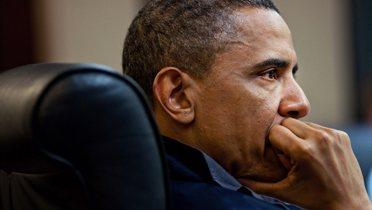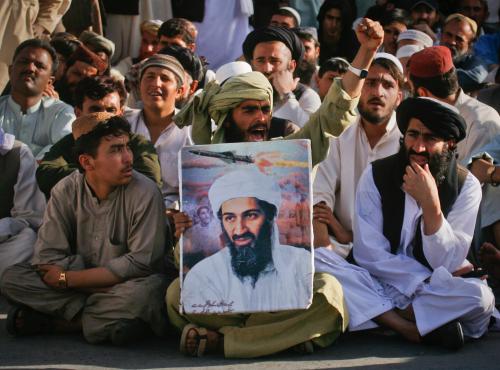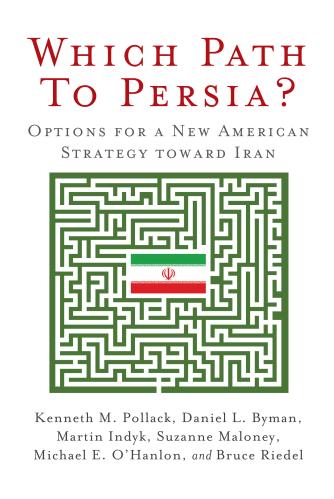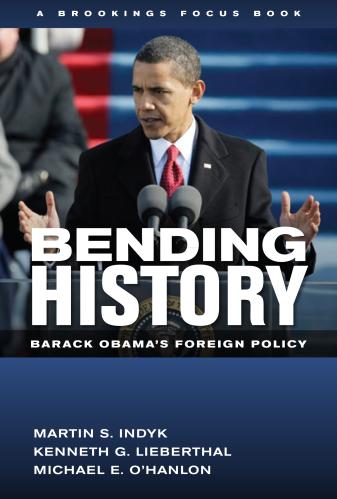Editor’s Note: In an interview with Dana Weiss on Israel’s Meet the Press (Channel 2), Martin Indyk discusses homegrown terrorism in the Boston Marathon bombings, as well as President Obama’s recent trip to the Middle East, the role of Secretary of State John Kerry, and prospects for peace between Israel and Palestine. Read an excerpt below, and watch the full interview at mako.co.il (interview starts at 10:05).
Dana Weiss: You’re here for the INSS conference, but of course the focus is naturally on the events back in the U.S., and as we see the unfolding events in Boston, it’s quite clear that terror has struck again at the heart of America.
Martin Indyk: It’s the great irony, I’m here in Israel, which is normally ground zero for terrorism, and it’s happening in our backyard, in Boston. And it’s a big shock, I think, to Americans who thought that so many years after 9/11, so much effort taken to fight al-Qaeda, the taking out of Osama bin Laden himself, the sense that we had them on the ropes – and here, an act of homegrown terrorism that appears to be Islamist-related, jihadist-related – and how do you deal with homegrown terrorists?
It’s a kind of shock for the system, because look at what happened on 7/7 in London – those kinds of attacks from, again, homegrown terrorists there – it’s a very scary thing to imagine that they’re in our midst – and how do you find them under those circumstances?
Dana Weiss: And you know, the President asked not to jump to conclusions and to wait for the facts, but I think it’s quite clear that as you said, it’s not enough to get rid of bin Laden. There is actually no way to eliminate this terror, especially when it’s back to the extreme Muslim terror against the West.
Martin Indyk: Well, if that’s what we’re facing – and we have to be careful jumping to conclusions – but if that’s what we’re facing, then yes, it’s a long struggle that is, at its heart, ideological. And that’s, essentially, people turn to extremist actions – terrorist actions – for a range of motives, but certainly it seems that for Muslim believers, there’s a potential to move to an extreme point because of the teachings and extremist ideology that’s being perpetrated out there every day out there on the internet; places like Inspire magazine, and they can learn, get their instructions and learn how to build their bombs, and it becomes a metastasized problem.
Dana Weiss: And do you think it will affect in any way the American policy in the Middle East, pulling out of Afghanistan, even dealing with the situation here in our region?
Martin Indyk: No, I don’t think so. I think that the American people are tired of wars in this part of the world. Obama is holding up, it’s an achievement, of ending America’s involvement in wars in the greater Middle East, and that is very popular in the United States; with the United States Armed Forces as well. And so I think that people now draw a distinction between having to fight terrorism, wherever it rises as a threat, and avoiding the kind of ground wars in the Middle East. And of course Obama’s use of drones has, I think, led the American public to believe that we have a kind of easy way of dealing with this…
Dana Weiss: …yeah, from a far distance…
Martin Indyk: …from a distance, but not when it’s in your backyard.
The Brookings Institution is committed to quality, independence, and impact.
We are supported by a diverse array of funders. In line with our values and policies, each Brookings publication represents the sole views of its author(s).









Commentary
Homegrown Terrorism in the Boston Bombings, President Obama’s Middle East Visit, and the Israeli-Palestinian Peace Process
April 20, 2013